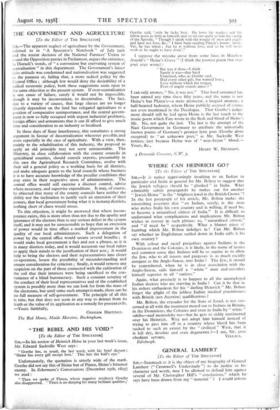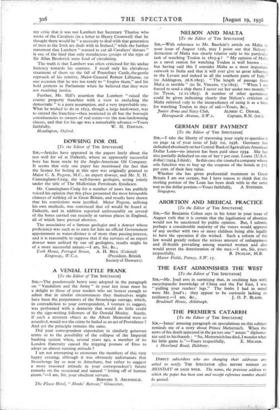GENERAL LAMBERT [To the Editor of THE SPECTATOR] SIR, —Inasmuch as
it is the object of my biography of General Lambert (" Cromwell's Understudy ") to do justice to his character and worth, may I be allowed to defend him against several of Mr. Christopher Hill's " conclusions," which he says have been drawn from my " material " ? I would inform
my critic that it was not Lambert but Secretary Thurloe who wrote of the Cavaliers (in a letter to Henry Cromwell) that he thought there would be " a necessity to deal with that generation of men as the Irish are dealt with in Ireland," while the further statement that Lambert " wanted to cut all Cavaliers' throats " is one of the kind that only mendacious gossips of the type of Sir Allan Broderick were fond of circulating.
The truth is that Lambert was often criticised for his undue leniency towards his enemies. I recall only his chivalrous treatment of them on the fall of Pontefract Castle, the gentle reproach of his relative, Major-General Robert Lilburne, on one occasion that he was too ready to " forgive them," and his bold protests in Parliament when he believed that they were not receiving justice.
Further, Mr. Hill's assertion that Lambert " raised the county property franchise with a view to excluding the democratic " is a pure assumption, and a very improbable one. What he wished to do in 1653, though a large landowner, was to extend the franchise—then restricted in all but the borough constituencies to owners of real estate—to the non-landowning classes, and that for his age was a remarkable advance.—Yours







































 Previous page
Previous page